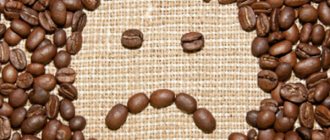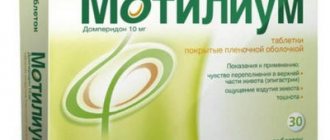Red wine: is it possible or not?
There is an opinion that red wine in small quantities can be used for ulcers, because it kills the bacterium Helicobacter pylori, which causes peptic ulcers. This information should not be taken as a guide to action. It is better to turn to other remedies: prescribed medications, green tea, manuka honey, etc.
Frequent drinking of alcohol, binges with ulcers
Regular consumption of alcohol or episodes of heavy drinking lead to malignant neoplasms, as well as ulceration of the walls of the stomach and duodenum, negatively affects digestive function, causing pain, vomiting, belching, aversion to food, and weight loss. A person feels discomfort in the upper abdomen. The pain usually begins 1-3 hours after eating.
How much and what kind of alcohol is possible for gastritis
Even in moderate quantities, it is undesirable to drink alcoholic beverages if you have problems with the gastrointestinal tract. However, situations are different, and sometimes it is impossible to refuse a glass. Centuries-old traditions have to be maintained even by those who are not entirely healthy. Let's consider how to drink alcohol with chronic gastritis or in remission, so as not to harm yourself.
- After completing the course of treatment and waiting for the condition to stabilize, you can allow yourself to drink a high-quality, expensive, high-strength drink (50-100 ml) approximately once a month. This could be elite vodka or cognac. You can indulge in a glass of good red wine, but also only on holidays. Dry wine contains antioxidants that are beneficial for the body and mucous membranes in particular. Under no circumstances should you drink cocktails, champagne, sparkling wines, bottled beer, or liqueurs.
- German doctors allow patients with gastritis to drink unfiltered beer. However, this recommendation only applies to high-quality drinks made from malt and hops. The European nothing like canned beer , so this advice is only for those who can afford to treat themselves to a foamy beer from a real brewery once every 3 weeks (no more than 1 liter).
- You should not drink alcohol before eating. First you need to fill your stomach with food, then drink the drink. This makes it possible to soften its effect on the mucous membrane.
- The specified alcohol standards are considered conditional. For some patients, 30 ml is enough to feel slightly intoxicated. In this case, you need to stop so as not to harm yourself.
Does vodka cure or cripple ulcers?
Strong alcoholic drinks cause burns to the inner walls of the stomach. Even their single use is harmful. If the stomach is empty, alcohol easily penetrates into the bloodstream, disrupting the blood supply process. The vessels feeding the organ are destroyed.
So is it possible to drink vodka for an ulcer? – Only after meals, in small quantities. It’s better to give up strong alcohol altogether. Some people try to treat stomach ulcers with vodka. This is dangerous because apparent relief occurs, pain dulls, and this prevents the patient from tracking the real situation with his health.
Alcohol for gastritis in the acute stage
As soon as gastritis worsens, the mucous membrane becomes inflamed. Any alcohol-containing drink that gets on the walls of the stomach burns them. The higher the strength, the stronger the burn. Drinking alcohol is dangerous to health, but there are ways to mitigate its effects on the mucous membranes:
- you need to choose the right snack;
- you cannot drink alcohol on an empty stomach;
- You can first eat a sandwich with butter.
But there are cases when alcohol is strictly contraindicated for gastritis. It is not allowed to drink alcohol if the patient is taking antibiotics. If you have ulcers of any size, you should not drink vodka or wine. Drinks burn very strongly and may cause internal bleeding.
If you drink regularly
With regular alcohol consumption, even a person with an initially healthy stomach becomes the owner of gastritis, which smoothly turns into an ulcer. The production of hydrochloric acid is blocked - food rots, poisoning the body. Bad breath, nausea and vomiting appear. Hydrochloric acid disinfects food. With its deficiency, stomach poisoning occurs.
The most dangerous complication is rupture of the ulcer, accompanied by bleeding. This can be fatal. Symptoms include severe pain, vomiting, and bloody or coffee-colored stools.
When it got bad
What to do if you feel sick after drinking alcohol? Rinse the stomach. Washing removes some of the ethanol from the body and alleviates the patient’s condition. You need to induce vomiting. If bloody formations are found in the vomit, or blood starts to appear, you should urgently call an ambulance. After washing, drink hot tea or milk and wrap yourself up. Take a horizontal position.
For ulcers and gastritis, dietary nutrition is indicated. Liquid porridges with water, pureed soups, jelly. Decoctions of mint and chamomile are also healing. Whereas any alcohol should be excluded.
Alcohol for gastritis of the stomach in remission
Strict adherence to the diet and compliance with all doctor’s instructions leads to victory over gastritis. But it’s too early to rejoice, because the disease has not gone away forever, but is in remission. As long as nothing temporarily bothers them, former patients feel relieved. In the absence of pain or nausea, sometimes they allow themselves to sit at the table with company.
Drinking alcohol with gastritis, even in remission, is dangerous. As soon as ethyl alcohol reaches the stomach, the secretion of gastric juice increases. If this is normal for a healthy person, then it is undesirable . The released hydrochloric acid hits the walls, causing irritation. From the stomach, alcohol enters the blood vessels and spreads throughout the body through the blood. Attention weakens, vigilance becomes dull. The patient often breaks his diet, which is also unacceptable.
Attention!
The main danger is that exacerbation of gastritis must be treated with drugs that are incompatible with alcohol, so you will have to endure pain for several days until all the ethanol leaves the body.
The causative agent of the disease
Gastritis begins to develop due to Helicobacter pylori . This is a bacterium that is the main causative agent of this disease. This microorganism has pathogenic properties that cause inflammation of the mucous membrane on the walls of the stomach.
Doctors distinguish several forms of this disease, each of which manifests itself in its own way. For example, during the acute stage of the disease, the patient experiences indigestion, accompanied by almost constant heartburn . In addition, he is overcome by painful attacks of pain and constant nausea .
In the chronic form, the classic symptoms are not so pronounced. Moreover, during remission, the patient may feel completely healthy, but will not be able to get rid of the painful symptoms that will still appear from time to time.
How does alcohol affect the course of peptic ulcer disease?
Drinking alcohol provokes the development of the disease and the appearance of its exacerbations, so drinkers develop this disease much more often than non-drinkers. In addition, alcohol increases the risk of complications, which include bleeding, perforation and penetration. Without exception, all alcoholic drinks provoke irritation of the gastric mucosa and reduce the severity of local protection. Alcohol reduces acidity and slows down the digestion of food, and suppression of the immune system in people with alcoholism provokes increased proliferation of bacteria that cause ulcers.
IBD and milk
An important question that often arises among both patients and doctors is intolerance to milk and milk-based products in patients with IBD. Domestic websites for patients often recommend eliminating milk from the diet, for absolutely all patients. Foreign authors (for example, experts from the European Society of Enteral and Parenteral Nutrition), analyzing the results of clinical studies, advise limiting or eliminating milk only in the presence of lactase deficiency.
What is lactase deficiency?
Lactase deficiency is a deficiency of the enzyme lactase, which breaks down milk sugar - lactose - in the small intestine. As a result, a large amount of undigested milk sugar accumulates in the intestinal lumen, which causes diarrhea, bloating, nausea, heaviness and pain in the upper abdomen.
It is known that when switching to an adult diet, the activity of the lactase enzyme may gradually decrease in some people. This process is genetically mediated. As a result, a person who previously tolerated milk and dairy products well begins to experience unpleasant symptoms.
This condition is called lactase deficiency (hypolactasia) in adults.
Lactase deficiency in adults occurs in 90% of Asian peoples and 80% of African Americans, while in representatives of the white race in Western and Northern Europe this condition is observed quite rarely - 10-15% of cases.
How to detect lactase deficiency?
The easiest way to diagnose lactase deficiency is an elimination diet , when milk and milk-based products are excluded from the diet, after which the symptoms completely disappear. In patients with IBD in the acute phase, the results of such a “test” are difficult to interpret due to the large number of symptoms associated with disease activity.
A more accurate method is a molecular genetic study to determine the mutation of the gene responsible for the production of the lactase enzyme.
The advantage of the method is its low invasiveness; only a small amount of the patient’s blood is required for the study. However, the presence of a gene mutation does not always reflect the true activity of the enzyme in the small intestine. Lactase activity on the surface of small intestinal cells may be reduced in Crohn's disease, without genetic mutations.
Laboratory methods for diagnosing lactase deficiency include the hydrogen breath test . It is used as an indirect method for diagnosing the disease. The essence of the test is to measure the concentration of hydrogen in exhaled air (for example, using a LactofaN2 hydrogen analyzer) after consuming lactose. In case of lactase deficiency, undigested lactose is used by the colon microflora with the release of hydrogen. However, the rate of false-positive lactose breath test results is as high as 20%.
The gold standard for diagnosing lactase deficiency is the determination of lactase activity on the surface of small intestinal cells.
obtained during gastroscopy are used as material for the study The method allows you to accurately determine the deficiency of the lactase enzyme and determine the degree of its deficiency.
How common is lactase deficiency in IBD?
As mentioned above, exclusion of milk (less often, fermented milk products) is indicated for patients with IBD and proven lactase deficiency. But how often does it occur in such patients? Data from clinical studies vary, likely due to the ethnic diversity of the study groups. Thus, in Crohn's disease, the frequency of detection of lactase deficiency by a breath test and/or genetic study varies from 17 to 70% of cases; in ulcerative colitis, enzyme deficiency is found in 4-44% of patients.
A pattern has been revealed according to which the localization of the inflammatory process in the small intestine in Crohn's disease is more often accompanied by lactase deficiency (100% of cases with lesions of the jejunum, 68% with terminal ileitis, 55% with ileocolitis) compared with isolated lesions of the colon (with Crohn's colitis - 43.5%).
It is unreasonable to exclude milk and fermented milk products from the diet for all patients diagnosed with IBD. Undoubtedly, a patient with proven lactase deficiency requires a sharp restriction of whole milk in the diet. But if milk intolerance was identified only during an exacerbation of IBD, this does not mean at all that the symptoms of intolerance will persist during the period of remission. Many patients who experience unpleasant symptoms when consuming whole milk tolerate milk-based products well. Dairy products that are generally well tolerated even in severe lactase deficiency include yogurt and cheese. Lactose-free milk and products based on it can also be used in diet therapy. Some patients with proven lactase deficiency tolerate drinking small amounts of whole milk (less than 250 ml per day) with other foods.
Alcohol tinctures for treatment
In alternative medicine, propolis is often used to treat stomach ulcers. It contains substances that have a beneficial effect on the healing and disinfection of the gastric mucosa, and also reduces acidity and has a general strengthening effect. For medicinal purposes, an oil solution and alcohol tincture are used. For stomach ulcers, it is used for therapeutic and prophylactic purposes.
To prepare, take half a liter of alcohol and 100 grams of propolis. Bee glue is placed in a dark glass bottle and filled with alcohol. Place the container in a dark place at room temperature for 3-4 weeks, shaking the contents periodically. Before use, strain the tincture. For medicinal purposes, take 30-50 drops, diluted in a glass of water, three times a day, two hours before meals. The course of treatment is from one to two months.
Function of the digestive system
The process of processing food in the stomach begins with the production of gastric juice (hydrochloric acid as its main component) and a special enzyme, pepsin. To protect the organ, its walls are protected by a thick layer of mucus. In a healthy person, it is so reliable that the active substances for digesting food pieces simply cannot get through it.
Poor nutrition, nervous disorders, bad habits and other factors disrupt it, the mucous membrane becomes thinner and destroyed, and through it, hydrochloric acid penetrates the walls of the stomach, corroding them with the formation of bleeding ulcers.
The entry of alcohol into the stomach causes an increase in secretion, and there is more hydrochloric acid than is needed for digestion. Its excess destroys the protective layer, but since it is quite thick, without damage, and mucus production occurs constantly, short-term exposure to the wrong foods and liquids does not cause significant harm to a healthy body, and recovery occurs quite quickly.
Basic principles of nutrition
For stomach ulcers, the diet is aimed at restoring the functions of the gastrointestinal tract and eliminating the symptoms of the disease. The basic principles are as follows:
- Consume at least 3000 kcal per day.
- Food should be easily digestible in pureed, liquid or crushed form.
- It is unacceptable to eat hot and cold foods, they inhibit the formation of enzymes and slow down the restoration of the epithelium.
- Be sure to eat small meals with breaks not exceeding three hours.
- The serving size should fit into cupped palms.
- Maintain a daily fluid regimen of 1.5-2 liters.
- When cooking, use heat treatment of foods: stew, boil, blanch.
- Minimize salt intake.
The diet should be followed for at least a year after an exacerbation of the disease.
Using folk recipes
It is quite possible to alleviate the condition of an ulcer patient at home. To treat stomach ulcers using folk remedies:
- A mixture of raw chicken yolk, honey, butter and cocoa powder. All ingredients are taken in equal volumes and mixed thoroughly until smooth. The drug is taken half an hour before meals, a tablespoon every four hours. The product quickly relieves pain, but it must be used for at least two weeks.
- Potato juice. Grate the tuber on a fine grater and squeeze out the juice. Take half a glass on an empty stomach twice a day, the course of treatment is one month. This recipe has been used for a long time to treat ulcerative lesions.
- Beetroot juice. Before use, it is diluted in equal volumes with water. Take half a glass on an empty stomach.
- Infusion of flax seeds. Place two spoons of seeds in a thermos and pour 400 g of boiling water overnight. In the morning, the solution is poured into a container and boiled for a minute. Take a third of a glass in the morning on an empty stomach three times a week.
- A mixture of honey, alcohol and aloe juice. All components are taken in equal quantities and left for a day. Treatment lasts one and a half months. The infusion is used one tablespoon three times a day.
How long after surgery can I drink?
How soon can you drink alcohol after surgery? This question is extremely individual and depends on many factors. That is why your lechen doctor will be able to tell you the exact date, and most likely not immediately after the operation, but depending on how your body recovers. There are only approximate recommended times:
- After operations related to gynecological problems, you should not drink alcohol for two months.
- When the gastric bladder is removed, the patient will have to give up alcohol forever.
- Special attention should be paid to heart operations. If everything went well and the pathology is completely eliminated, the patient will be able to drink no earlier than in a month. But if you violate this instruction, there is a high risk of causing complications.
- For eye diseases, the interval after correction should be at least 4 weeks. Sometimes the patient is prohibited from drinking for 3 months. Such restrictions are associated not only with the recovery period, but also with the drugs that need to be used after surgery. Almost all of these drugs are incompatible with ethanol.
- After plastic surgery, it is not recommended to drink alcohol for three weeks in the absence of complications and pathologies.
- If we talk about malignant tumors, then everything depends on the specific clinical case and the characteristics of the patient’s body.
- When thinking about whether it is possible to drink alcohol when the thyroid gland is removed in the postoperative period, it is better to abandon this idea. It is necessary to completely avoid strong drinks, as their periodic intake will begin to destroy the body. Drinking will provoke the development of pathologies of the liver and blood vessels and will affect all systems. Taking it will also negatively affect brain function.











